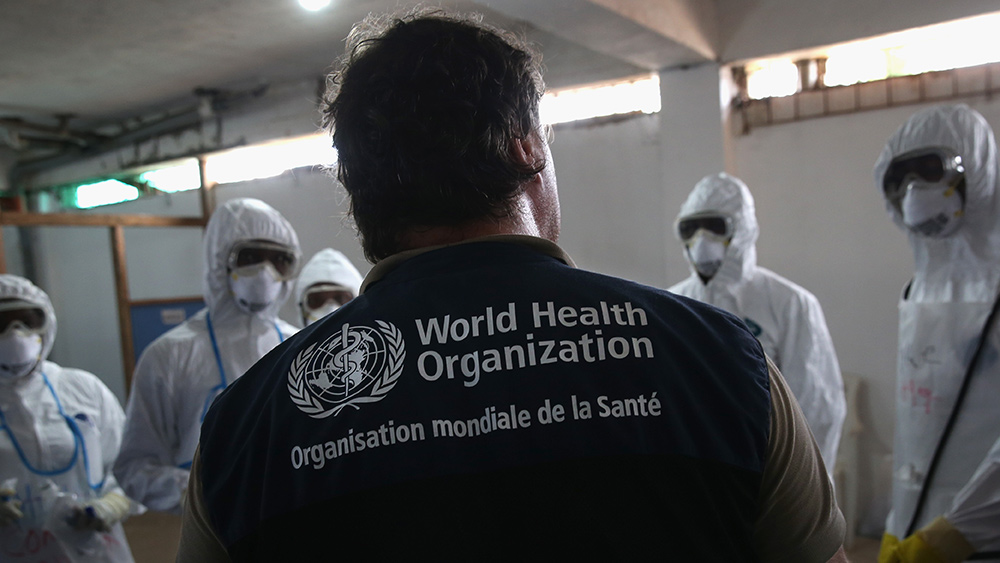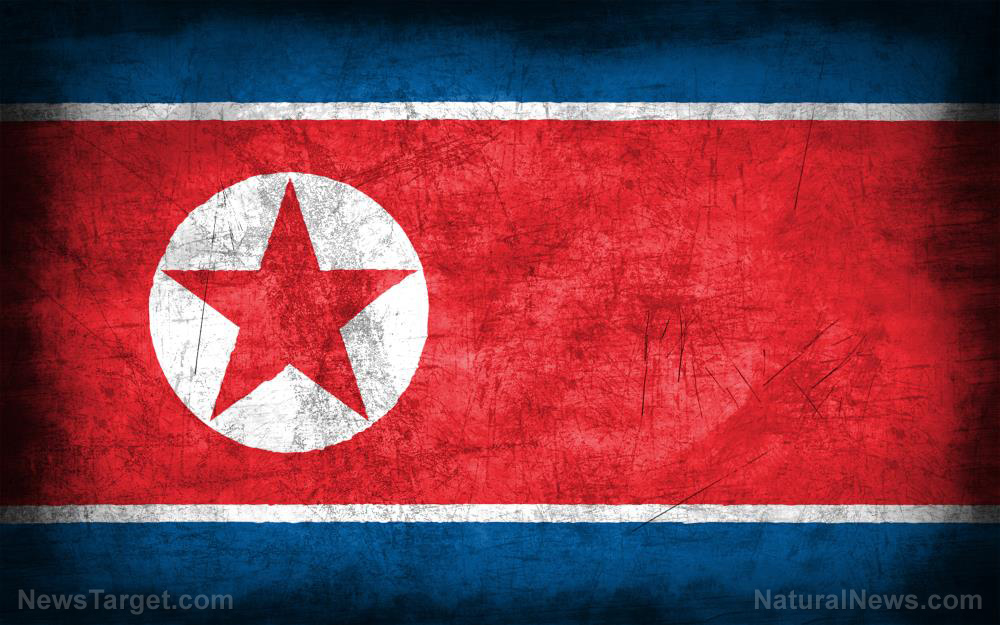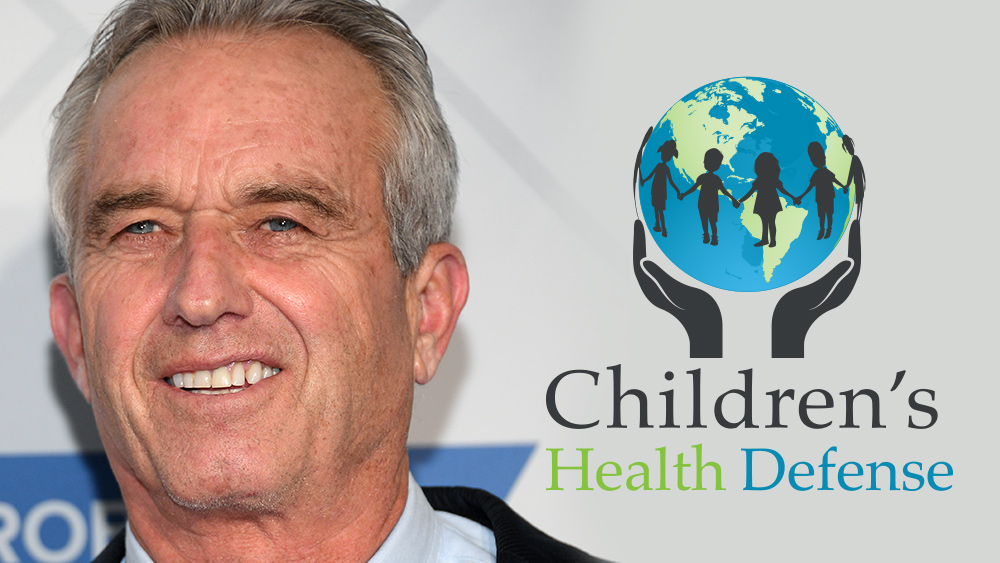WHO gets record-high $6.83 BILLION budget increase and approval for replenishment mechanism to raise MORE FUNDS
06/09/2023 / By Belle Carter

A record-high increase of $6.83 billion in the budget of the World Health Organization (WHO) for 2024-2025 has been approved to fight “pandemics fueled by climate change” and “emergencies of all kinds” during the 76th World Health Assembly (WHA) in Switzerland.
The staggering increase in budget and the launch of a new “replenishment” initiative for the agency were given the green light despite the fact that the WHA failed to come up with a final agreement on the pandemic treaty or amendments to the international health regulations (IHR). (Related: WHO pushing new pandemic rules to gain dictatorial control over UN’s 194 member countries.)
WHO member states on May 22 agreed to the WHO budget hike, which is a 20 percent increase in assessed contributions (or membership fees). The nations vowed to contribute $1.15 billion via their membership fees while another $5.69 billion will come from “voluntary contributions” from member states and other contributors. WHO Director-General Tedros Adhanom Ghebreyesus thanked the member states for the rise in the assessed contributions saying, this was “a historic milestone.”
Dr. David Bell, a public health physician, biotech consultant and former director of Global Health Technologies at Intellectual Ventures Global Good Fund, said the approval of more funds “illustrates that global health as a discipline has completely lost the plot and been taken over by people interested in making a profit.”
WHO’s budget priorities focus on expanding universal health coverage, protecting the world from health emergencies and promoting “better health and well-being” for one billion and more people.” The funds will also go to WHO support to countries, polio eradication, special programs and emergency operations.
According to independent journalist James Roguski, the WHO spent twice as much on salaries ($1.164 billion) as it did on medical supplies and materials in 2022, which represented only 13 percent of expenditures.
In addition to the increase in member states’ contribution, WHO is also doing the “replenishment mechanism” to raise even more funds, from private actors. It will increase the predictability of WHO’s funding by encouraging multiyear commitments. It will also attract new donors and “enhance political support for the full financing of the base segment of WHO’s program budget through a year-long, inclusive engagement process that culminates in a high-visibility financing event.”
The replenishment mechanism and several “investment rounds” should start in 2024. And to make this opportunity enticing for investors, there will be a “$35 return for every $1 invested in WHO,” the agency announced.
WHO shows true colors by partnering with globalist group Rockefeller Foundation
Tedros opened the WHA on May 21 with a speech emphasizing the need to expand vaccine coverage all over the world and promoted the use of new vaccines targeting tuberculosis, malaria and human papillomavirus (HPV), especially in low- and middle-income countries.
He also denounced “anti-vaxxers” for the WHO’s failure to 100 percent implement the Wuhan coronavirus (COVID-19) and diphtheria, tetanus, pertussis (DPT) inoculation drives.
Elsewhere in his opening remarks, the WHO top official lauded Gavi, the Vaccine Alliance “for reaching the incredible milestone of immunizing one billion children.” Gavi was established in 1999, with Bill and Melinda Gates Foundation as one of its co-founders and permanent board members. It maintains a core partnership with the WHO, UNICEF and the World Bank.
During the summit, it was also announced that the WHO is partnering with the globalist Rockefeller Foundation “to strengthen the WHO Hub for Pandemic and Epidemic Intelligence,” with a $5 million investment that will accelerate priority projects to drive global collaboration in genomic surveillance, adoption of data tools for pathogen detection, and assessment of climate-aggravated outbreak threats.
According to Dr. Chikwe Ihekweazu, WHO assistant director-general and head of the WHO Hub for Pandemic and Epidemic Intelligence, the COVID-19 pandemic underscored that disease surveillance was essential to health security. This, he said, made the global community unprepared.
Dr. Rajiv Shah, president of the Rockefeller Foundation, added that “Climate change is increasing both the risk of another global pandemic and the need to collaborate and share data. We’re proud to partner with the Hub to expand its focus on preventing pandemics fueled by climate change.”
Visit Corruption.news for more on agencies that have gone corrupt and profit-driven.
Watch the video below where WHO officials discuss writing a new chapter in global health history that would include vaccine passports and digital health certificates.
This video is from the Thrivetime Show channel on Brighteon.com.
More related stories:
Robert F. Kennedy Jr. rolls out campaign against WHO’s impending power grab.
World Health Organization pushing for global vaccine passport scheme.
Sources include:
Submit a correction >>
Tagged Under:
big government, budget increase, climate change, conspiracy, corruption, deception, finance riot, fundraising, Global health threat, IHR, investment rounds, money supply, pandemic, replenishment mechanism, surveillance, vaccines, WHO, World Health Assembly
This article may contain statements that reflect the opinion of the author
RECENT NEWS & ARTICLES
COPYRIGHT © 2018 GLOBALISM.NEWS
All content posted on this site is protected under Free Speech. Globalism.news is not responsible for content written by contributing authors. The information on this site is provided for educational and entertainment purposes only. It is not intended as a substitute for professional advice of any kind. Globalism.news assumes no responsibility for the use or misuse of this material. All trademarks, registered trademarks and service marks mentioned on this site are the property of their respective owners.



















